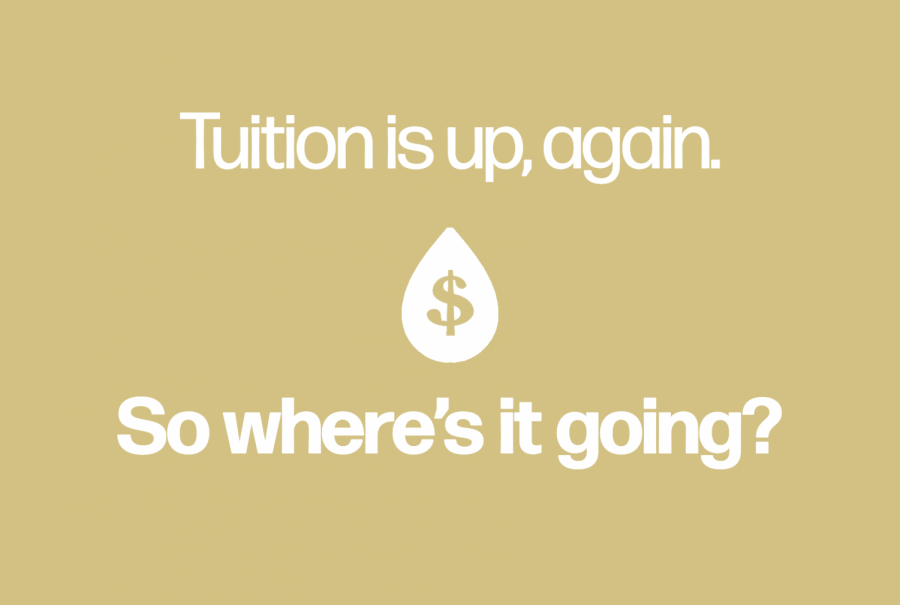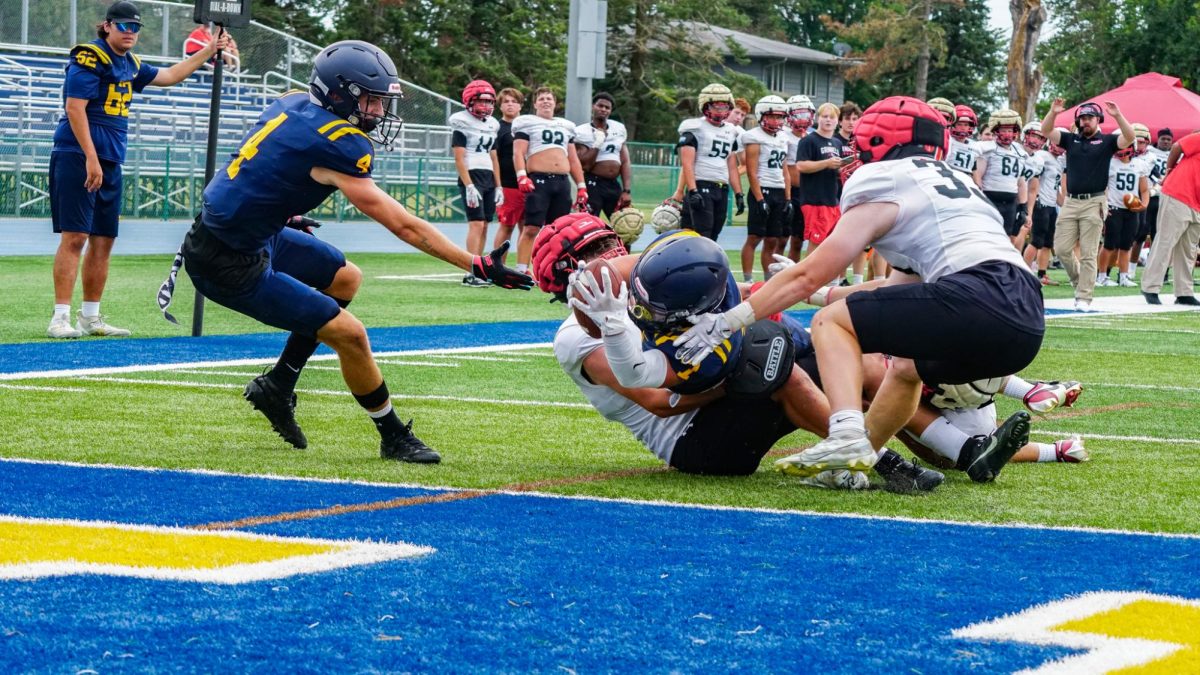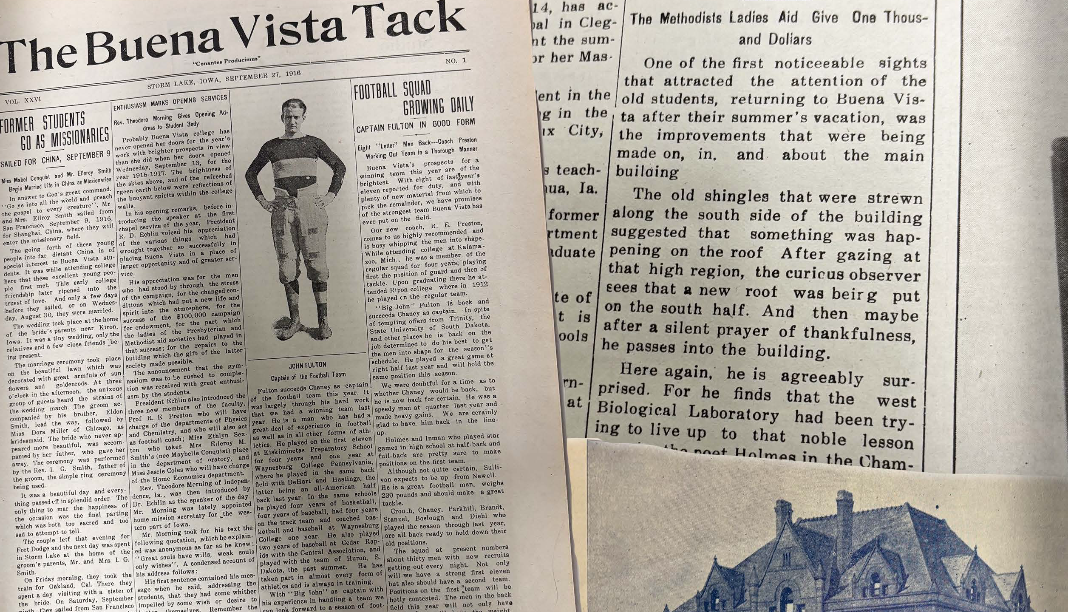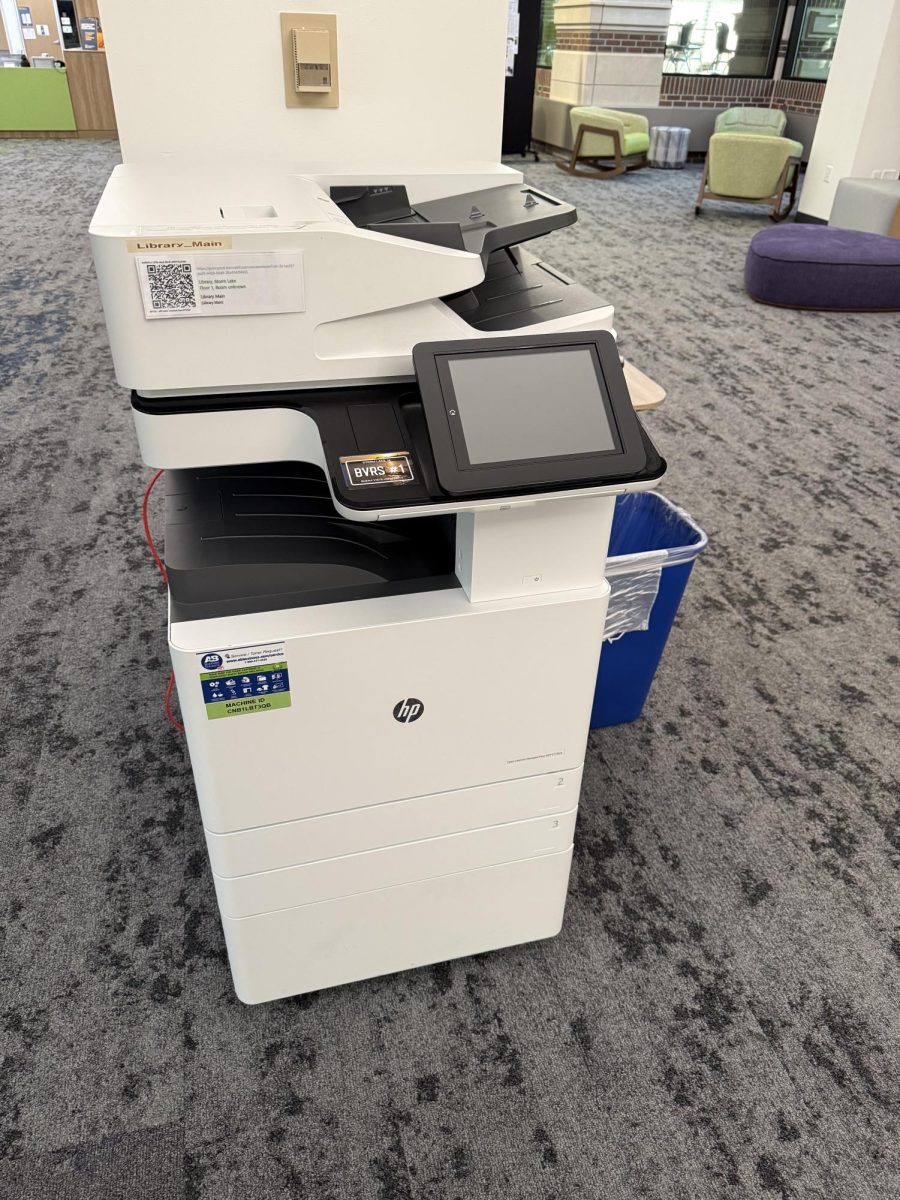Tuition Increases
December 1, 2021
Coffee gets a little more expensive every decade; gas seems to go up or down each week. Where a steak may have cost 50 cents in the 1920s, it’s 50 bucks in the 2020s.
It’s no surprise, then, that Buena Vista University increases tuition by 3 percent annually each year.
Dr. Brian Lenzmeier was able to comment on the tuition increase, stating, “It goes up each year,” Lenzmeier said, “In part to cover increased expenses. We have to try to give cost of living increases for people who work here, increased expenses for utilities, things like that.” He added, “So many things that we have to buy and do are costing more.”
One major part of the budget, Lenzmeier explains, goes towards staff salary. “The vast majority of it is going towards increases for our faculty and staff. We went through a four-year period where faculty and staff had salary freezes.” During most of that period, Lenzmeier was not yet president, but a teacher here. Professors, faculty, and staff all watched tuition go up during 2015 to 2019, but no increase in their pay. “I was a part of that, and it was frustrating. Health insurance goes up, utility bills go up, groceries go up.” When finally, president Lenzmeier wanted the increase to help employees. “Last year, we were finally able to give them a pay raise, and this year they’re most likely getting a pay package that will be announced in early November. We’ll have something for them.”
Suzette Radke, Vice President for Finance and Administration, explains, “We do what’s called zero based budgeting. Everybody starts at zero, and they have to justify what their needs are.” Essentially, every Dean, program manager, and club organizer asks a higher up (for professors, their Deans; for Deans, the President; for student, Student Senate). “They turn that in each March, while we started doing calculations in December. In finance, we’re looking at what enrollment might look like, how many students will be living on campus, and then what expenses are going to increase?” Then, in May, the preliminary budget is presented to the Board of Trustees, just in time for the fiscal year in July. It’s set in October, around the time tuition is announced.
Other costs are going towards major issues, “Like Smith Hall,” Lenzmeier says. “It’s one that we’ve pulled most of the people out of there because we couldn’t get the parts to fix that. So that’s an academic building that will be getting a makeover… Over the next few years.”
Additionally, students can hope to see the money in other places. “Utility costs and additional things, like upgrades in residence halls. We take some of that money and increase it for things like, for example, mattresses — they aren’t all that fun,” he chuckles, “But, students need good sleep. We are looking at how we can take this money and utilize it not just for mundane, increased costs, but also, how can we improve the experience?” When asked about dorms, Radke was able to verify Lenzmeier’s statement; “We sit aside $150,000 in auxiliary — planned by a committee that talks and says, what can we do for the residence halls? — that is going towards mattresses, new carpet in Grand and in Liberty this upcoming May, furniture for the suites, those water bottle fountains.”
With costs going up, one may wonder if scholarships will, too. “I’ve made it my priority to fundraise things that keeps BV affordable for students,” Lenzmeier commented. “To me, that’s really, really important. Luckily this week we announced a grant that will help students who are going to become juniors or seniors next year, if they’re pell or Iowa-tuition grants eligible for states in the Midwest, if they improve their grades, even by .001, they’ll get a grant that will lower student loan debt.” When asked about how scholarships may increase alongside rising costs, Lenzmeier said, “I am working to fundraise for that. I hope that in ten years I can walk away and say, ‘Yeah, we’ve got scholarships that are going to increase every single year!’ For right now, I can’t promise that but I’m working hard on that.”
Radke was also able to help explain how funds are allocated to student organizations. “I’ve been here a long time and I know years ago, we started an account that every year, when the fiscal year starts, there’s $110,000 that is divided, two-thirds to SAB and one-third to Student Senate.” In the grand scheme of things, SAB’s $110,000 is miniscule next to how much money BVU receives. And, while the budget has increased for everything else, SAB has stayed at their two-thirds. The $110,000 from Student Senate is allocated between student clubs and organizations on campus each May, with student leaders proposing a total that they may need for the next year. “If all of SAB’s money doesn’t get spent, it’s in a rolling account, so all of that money rolls over to the next year, plus the new money for that year.” The same applies to money allocated for Student Senate. Radke did state, however, that money from the dorms does not roll over this way.
Covid: “COVID expenses were federally funded by the CARES Act.” The Coronavirus Aid, Relief, and Economic Security Act was put into place by Trump in March 2020, lending $14 billion to colleges across the nation. As a result, BVU doesn’t have to take out any additional costs due to the pandemic. “We ran a balanced budget last year, so we didn’t profit or lose money.”
While more students were learning at home because of Covid-19 in past academic years, Lenzmeier noted, “I think we came out okay with Covid. That lost revenue got covered by federal funds which allowed us to break even.” BVU was able to refund their students for housing costs after most were not occupying their on-campus living. All students were sent home early in March of 2019 when Covid had just begun to spread. As for the 2020 academic year, students went home for online learning and an extra-long break starting from the end of November to mid-January of 2021. Being able to refund students of their housing costs was something Lenzmeier was proud to do, and he expressed, “We didn’t have to, but we did.”
Besides the federal funds which covered most of the revenue loss that BVU and other colleges across the nation experienced with budget differences, donors also made up for that. Lenzmeier was able to communicate with those donors who wanted to contribute and made it his priority to focus on additional student debt resources. As for efforts made during the pandemic Lenzmeier says, “We are always looking for ways to get donations that will help out. We actually had a nice response during the pandemic. We were able to create an emergency fund for students who couldn’t afford access to Wi-Fi and things like that.”
BVU currently has minimal fees outside of tuition costs in addition to room and board. Lenzmeier explains, “We do have a fee for student teaching and a course fee for education, but a lot of schools on top of the tuition and room and board have all these different fees that we don’t charge here.” For a perspective on the fee amounts that other private schools incorporate, Lenzmeier shared how some institutions have additional costs ranging from $180 to $220 in Health and Well-being fees. He explained that Health and Wellness fees are used to pay for nurses, and made his point with ease that, “We don’t charge our students for that…which I want to keep it that way.” It was further expressed by Lenzmeier, “Some of these places have over $1500 to $2000 in fees. We’re trying to keep that out of the equation so, we are trying it’s not perfect.”
With concerns from students about how the rise in tuition would be used for future benefits at BV, there is no doubt that President Lenzmeier’s efforts are solely on the students. When asked about Lenzmeier’s priorities, he said, “Figuring out a way to help people with tuition increases. I want to focus on rewarding people who have been here and done a good job and figuring out a way to soften that tuition increase if we can.” In an inflated world where gas and coffee continue to increase, so will BVU’s tuition.









